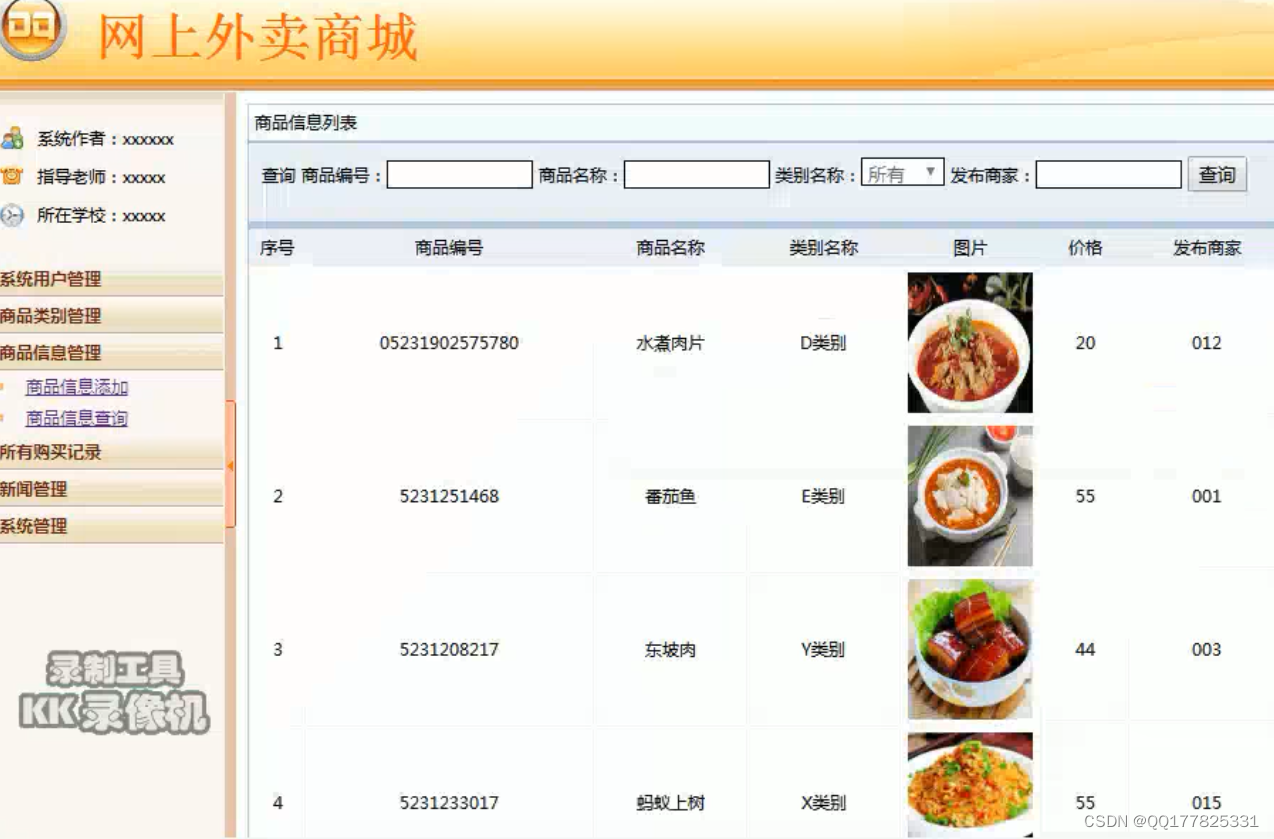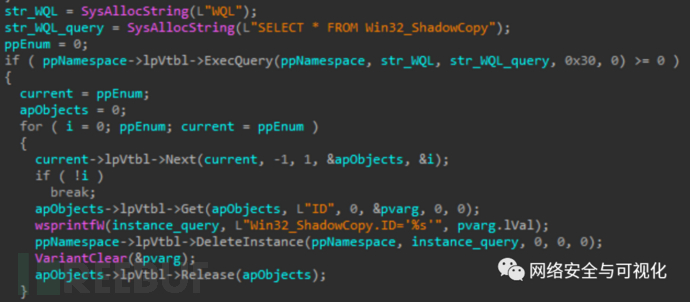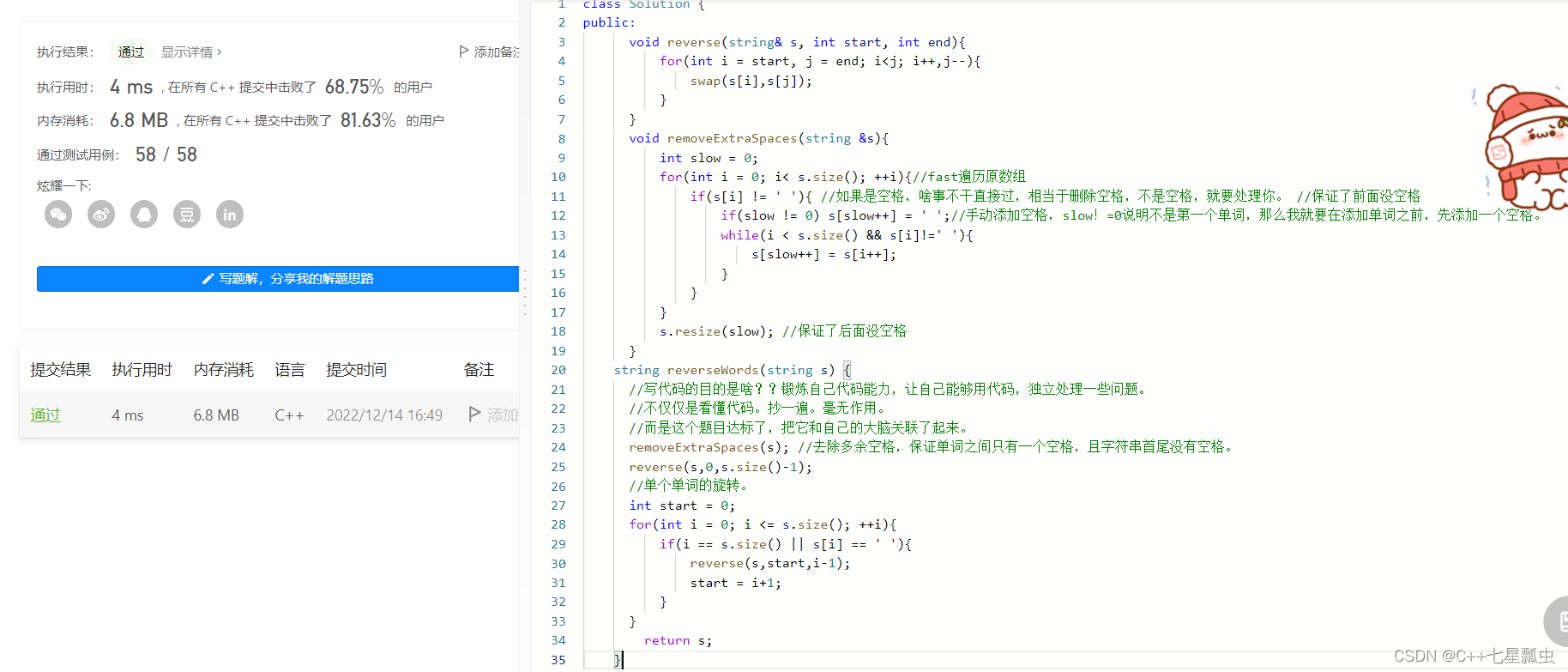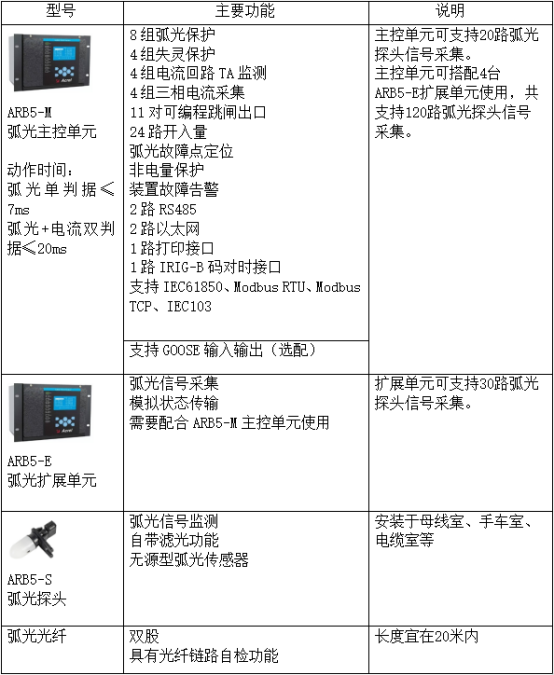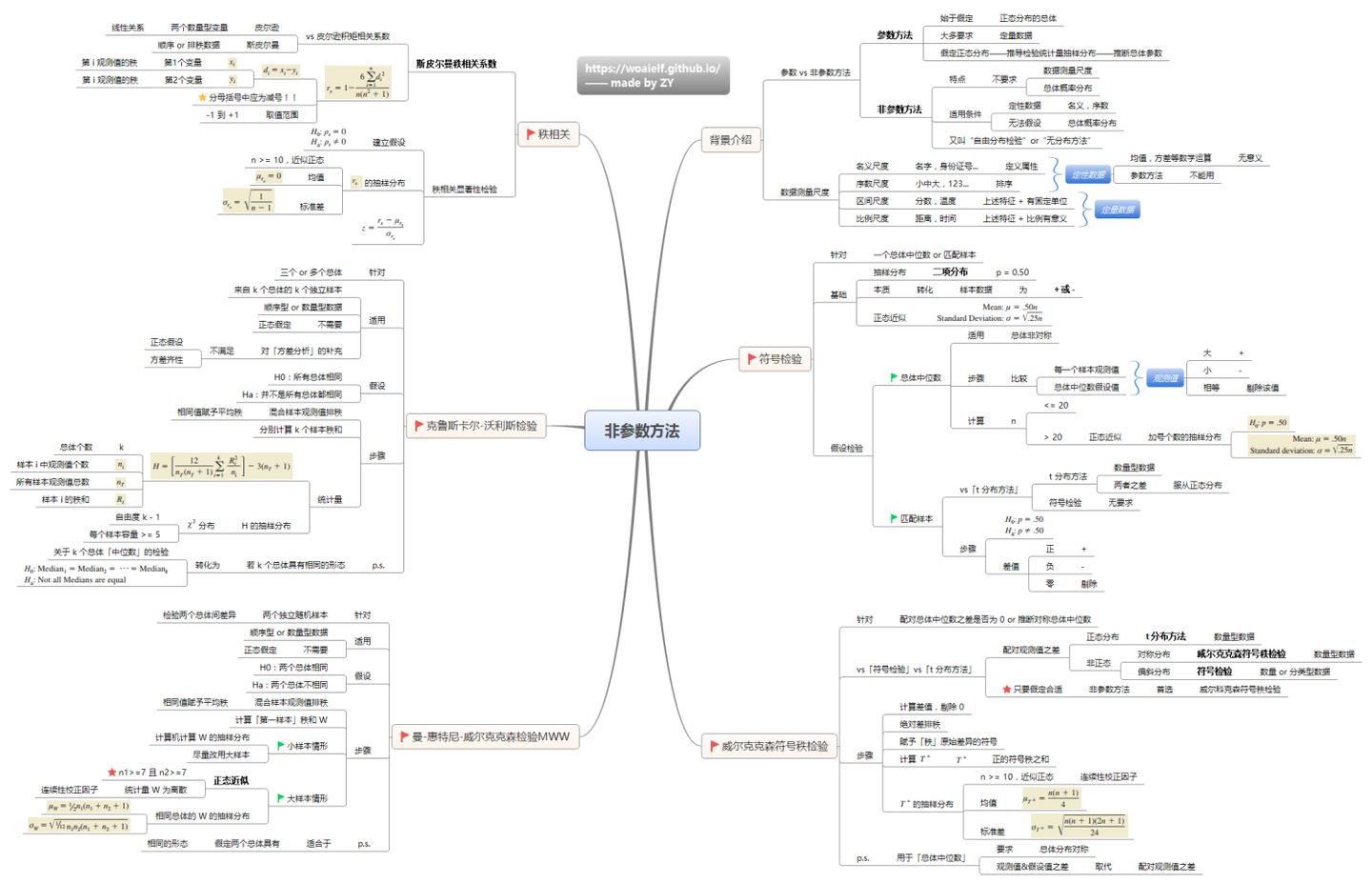
📫作者简介:zhz小白
公众号:小白的Java进阶之路
专业技能:
1、Java基础,并精通多线程的开发,熟悉JVM原理
2、熟悉Java基础,并精通多线程的开发,熟悉JVM原理,具备⼀定的线上调优经验
3、熟悉MySQL数据库调优,索引原理等,⽇志原理等,并且有出过⼀篇专栏
4、了解计算机⽹络,对TCP协议,滑动窗⼝原理等有⼀定了解
5、熟悉Spring,Spring MVC,Mybatis,阅读过部分Spring源码
6、熟悉SpringCloud Alibaba体系,阅读过Nacos,Sentinel,Seata,Dubbo,Feign,Gateway核⼼源码与设计,⼆次开发能⼒
7、熟悉消息队列(Kafka,RocketMQ)的原理与设计
8、熟悉分库分表ShardingSphere,具有真实⽣产的数据迁移经验
9、熟悉分布式缓存中间件Redis,对其的核⼼数据结构,部署架构,⾼并发问题解决⽅案有⼀定的积累
10、熟悉常⽤设计模式,并运⽤于实践⼯作中
11、了解ElasticSearch,对其核⼼的原理有⼀定的了解
12、了解K8s,Jekins,GitLab
13、了解VUE,GO
14、⽬前有正在利⽤闲暇时间做互游游戏,开发、运维、运营、推销等
本人著作git项目:https://gitee.com/zhouzhz/star-jersey-platform,有兴趣的可以私聊博主一起编写,或者给颗star
领域:对支付(FMS,FUND,PAY),订单(OMS),出行行业等有相关的开发领域
🔥如果此文还不错的话,还请👍关注、点赞、收藏三连支持👍一下博主~
文章目录
- 1、ApplicationContextAwareProcessor
- 2、BeanValidationPostProcessor
- 3、InitDestroyAnnotationBeanPostProcessor
- 4、AutowiredAnnotationBeanPostProcessor
1、ApplicationContextAwareProcessor
org.springframework.context.support.ApplicationContextAwareProcessor,作用:可以向组件中注入IOC容器
/*
* Copyright 2002-2021 the original author or authors.
*
* Licensed under the Apache License, Version 2.0 (the "License");
* you may not use this file except in compliance with the License.
* You may obtain a copy of the License at
*
* https://www.apache.org/licenses/LICENSE-2.0
*
* Unless required by applicable law or agreed to in writing, software
* distributed under the License is distributed on an "AS IS" BASIS,
* WITHOUT WARRANTIES OR CONDITIONS OF ANY KIND, either express or implied.
* See the License for the specific language governing permissions and
* limitations under the License.
*/
package org.springframework.context.support;
import org.springframework.beans.BeansException;
import org.springframework.beans.factory.config.BeanPostProcessor;
import org.springframework.beans.factory.config.EmbeddedValueResolver;
import org.springframework.context.ApplicationContextAware;
import org.springframework.context.ApplicationEventPublisherAware;
import org.springframework.context.ApplicationStartupAware;
import org.springframework.context.ConfigurableApplicationContext;
import org.springframework.context.EmbeddedValueResolverAware;
import org.springframework.context.EnvironmentAware;
import org.springframework.context.MessageSourceAware;
import org.springframework.context.ResourceLoaderAware;
import org.springframework.lang.Nullable;
import org.springframework.util.StringValueResolver;
/**
* {@link BeanPostProcessor} implementation that supplies the {@code ApplicationContext},
* {@link org.springframework.core.env.Environment Environment}, or
* {@link StringValueResolver} for the {@code ApplicationContext} to beans that
* implement the {@link EnvironmentAware}, {@link EmbeddedValueResolverAware},
* {@link ResourceLoaderAware}, {@link ApplicationEventPublisherAware},
* {@link MessageSourceAware}, and/or {@link ApplicationContextAware} interfaces.
*
* <p>Implemented interfaces are satisfied in the order in which they are
* mentioned above.
*
* <p>Application contexts will automatically register this with their
* underlying bean factory. Applications do not use this directly.
*
* @author Juergen Hoeller
* @author Costin Leau
* @author Chris Beams
* @see org.springframework.context.EnvironmentAware
* @see org.springframework.context.EmbeddedValueResolverAware
* @see org.springframework.context.ResourceLoaderAware
* @see org.springframework.context.ApplicationEventPublisherAware
* @see org.springframework.context.MessageSourceAware
* @see org.springframework.context.ApplicationContextAware
* @see org.springframework.context.support.AbstractApplicationContext#refresh()
* @since 10.10.2003
*/
class ApplicationContextAwareProcessor implements BeanPostProcessor {
private final ConfigurableApplicationContext applicationContext;
private final StringValueResolver embeddedValueResolver;
/**
* Create a new ApplicationContextAwareProcessor for the given context.
*/
public ApplicationContextAwareProcessor(ConfigurableApplicationContext applicationContext) {
this.applicationContext = applicationContext;
this.embeddedValueResolver = new EmbeddedValueResolver(applicationContext.getBeanFactory());
}
@Override
@Nullable
public Object postProcessBeforeInitialization(Object bean, String beanName) throws BeansException {
/**
* 首先对当前bean的类型进行判断,如果当前bean的类型不是EnvironmentAware,不是EmbeddedValueResolverAware,不是ResourceLoaderAware,
* 不是ApplicationEventPublisherAware,不是MessageSourceAware,ApplicationStartupAware,也不是ApplicationContextAware,那么直接返回bean,否则
* 最终会调用invokeAwareInterfaces()方法,并将bean传递给该方法。
*/
if (!(bean instanceof EnvironmentAware || bean instanceof EmbeddedValueResolverAware ||
bean instanceof ResourceLoaderAware || bean instanceof ApplicationEventPublisherAware ||
bean instanceof MessageSourceAware || bean instanceof ApplicationContextAware ||
bean instanceof ApplicationStartupAware)) {
return bean;
}
invokeAwareInterfaces(bean);
return bean;
}
/**
* ,就是判断当前bean属于哪种接口类型,然后将bean强转为哪种接口类型的对象,接着调用接口中的方法,将相应的参数传递到接口的方法中。
* @param bean
*/
private void invokeAwareInterfaces(Object bean) {
// 设置环境Aware
if (bean instanceof EnvironmentAware) {
((EnvironmentAware) bean).setEnvironment(this.applicationContext.getEnvironment());
}
//EmbeddedValueResolverAware
if (bean instanceof EmbeddedValueResolverAware) {
((EmbeddedValueResolverAware) bean).setEmbeddedValueResolver(this.embeddedValueResolver);
}
//资源加载Aware
if (bean instanceof ResourceLoaderAware) {
((ResourceLoaderAware) bean).setResourceLoader(this.applicationContext);
}
//应用事件发布Aware
if (bean instanceof ApplicationEventPublisherAware) {
((ApplicationEventPublisherAware) bean).setApplicationEventPublisher(this.applicationContext);
}
//消息源Aware
if (bean instanceof MessageSourceAware) {
((MessageSourceAware) bean).setMessageSource(this.applicationContext);
}
//应用启动Aware
if (bean instanceof ApplicationStartupAware) {
((ApplicationStartupAware) bean).setApplicationStartup(this.applicationContext.getApplicationStartup());
}
//应用上下文Aware
if (bean instanceof ApplicationContextAware) {
((ApplicationContextAware) bean).setApplicationContext(this.applicationContext);
}
}
}
2、BeanValidationPostProcessor
org.springframework.validation.beanvalidation.BeanValidationPostProcessor,作用:主要是用来为bean进行校验操作的,当我们创建bean,并为bean赋值后,我们可以通过BeanValidationPostProcessor类为bean进行校验操作
/*
* Copyright 2002-2018 the original author or authors.
*
* Licensed under the Apache License, Version 2.0 (the "License");
* you may not use this file except in compliance with the License.
* You may obtain a copy of the License at
*
* https://www.apache.org/licenses/LICENSE-2.0
*
* Unless required by applicable law or agreed to in writing, software
* distributed under the License is distributed on an "AS IS" BASIS,
* WITHOUT WARRANTIES OR CONDITIONS OF ANY KIND, either express or implied.
* See the License for the specific language governing permissions and
* limitations under the License.
*/
package org.springframework.validation.beanvalidation;
import jakarta.validation.ConstraintViolation;
import jakarta.validation.Validation;
import jakarta.validation.Validator;
import jakarta.validation.ValidatorFactory;
import org.springframework.aop.framework.AopProxyUtils;
import org.springframework.beans.BeansException;
import org.springframework.beans.factory.BeanInitializationException;
import org.springframework.beans.factory.InitializingBean;
import org.springframework.beans.factory.config.BeanPostProcessor;
import org.springframework.lang.Nullable;
import org.springframework.util.Assert;
import java.util.Iterator;
import java.util.Set;
/**
* Simple {@link BeanPostProcessor} that checks JSR-303 constraint annotations
* in Spring-managed beans, throwing an initialization exception in case of
* constraint violations right before calling the bean's init method (if any).
*
* @author Juergen Hoeller
* @since 3.0
*/
public class BeanValidationPostProcessor implements BeanPostProcessor, InitializingBean {
@Nullable
private Validator validator;
private boolean afterInitialization = false;
/**
* Set the JSR-303 Validator to delegate to for validating beans.
* <p>Default is the default ValidatorFactory's default Validator.
*/
public void setValidator(Validator validator) {
this.validator = validator;
}
/**
* Set the JSR-303 ValidatorFactory to delegate to for validating beans,
* using its default Validator.
* <p>Default is the default ValidatorFactory's default Validator.
* @see jakarta.validation.ValidatorFactory#getValidator()
*/
public void setValidatorFactory(ValidatorFactory validatorFactory) {
this.validator = validatorFactory.getValidator();
}
/**
* Choose whether to perform validation after bean initialization
* (i.e. after init methods) instead of before (which is the default).
* <p>Default is "false" (before initialization). Switch this to "true"
* (after initialization) if you would like to give init methods a chance
* to populate constrained fields before they get validated.
*/
public void setAfterInitialization(boolean afterInitialization) {
this.afterInitialization = afterInitialization;
}
@Override
public void afterPropertiesSet() {
if (this.validator == null) {
this.validator = Validation.buildDefaultValidatorFactory().getValidator();
}
}
@Override
public Object postProcessBeforeInitialization(Object bean, String beanName) throws BeansException {
//若afterInitialization的值为false,则在postProcessBeforeInitialization()方法中调用doValidate()方法对bean进行校验
if (!this.afterInitialization) {
doValidate(bean);
}
return bean;
}
@Override
public Object postProcessAfterInitialization(Object bean, String beanName) throws BeansException {
//若afterInitialization的值为true,则在postProcessAfterInitialization()方法中调用doValidate()方法对bean进行校验
if (this.afterInitialization) {
doValidate(bean);
}
return bean;
}
/**
* Perform validation of the given bean.
* @param bean the bean instance to validate
* @see jakarta.validation.Validator#validate
*/
protected void doValidate(Object bean) {
Assert.state(this.validator != null, "No Validator set");
Object objectToValidate = AopProxyUtils.getSingletonTarget(bean);
if (objectToValidate == null) {
objectToValidate = bean;
}
Set<ConstraintViolation<Object>> result = this.validator.validate(objectToValidate);
if (!result.isEmpty()) {
StringBuilder sb = new StringBuilder("Bean state is invalid: ");
for (Iterator<ConstraintViolation<Object>> it = result.iterator(); it.hasNext();) {
ConstraintViolation<Object> violation = it.next();
sb.append(violation.getPropertyPath()).append(" - ").append(violation.getMessage());
if (it.hasNext()) {
sb.append("; ");
}
}
throw new BeanInitializationException(sb.toString());
}
}
}
3、InitDestroyAnnotationBeanPostProcessor
org.springframework.beans.factory.annotation.InitDestroyAnnotationBeanPostProcessor,作用:主要用来处理@PostConstruct注解和@PreDestroy注解。
/*
* Copyright 2002-2022 the original author or authors.
*
* Licensed under the Apache License, Version 2.0 (the "License");
* you may not use this file except in compliance with the License.
* You may obtain a copy of the License at
*
* https://www.apache.org/licenses/LICENSE-2.0
*
* Unless required by applicable law or agreed to in writing, software
* distributed under the License is distributed on an "AS IS" BASIS,
* WITHOUT WARRANTIES OR CONDITIONS OF ANY KIND, either express or implied.
* See the License for the specific language governing permissions and
* limitations under the License.
*/
package org.springframework.beans.factory.annotation;
import org.apache.commons.logging.Log;
import org.apache.commons.logging.LogFactory;
import org.springframework.beans.BeansException;
import org.springframework.beans.factory.BeanCreationException;
import org.springframework.beans.factory.aot.BeanRegistrationAotContribution;
import org.springframework.beans.factory.aot.BeanRegistrationAotProcessor;
import org.springframework.beans.factory.config.DestructionAwareBeanPostProcessor;
import org.springframework.beans.factory.support.MergedBeanDefinitionPostProcessor;
import org.springframework.beans.factory.support.RegisteredBean;
import org.springframework.beans.factory.support.RootBeanDefinition;
import org.springframework.core.Ordered;
import org.springframework.core.PriorityOrdered;
import org.springframework.core.annotation.AnnotationUtils;
import org.springframework.lang.Nullable;
import org.springframework.util.ClassUtils;
import org.springframework.util.CollectionUtils;
import org.springframework.util.ReflectionUtils;
import java.io.IOException;
import java.io.ObjectInputStream;
import java.io.Serializable;
import java.lang.annotation.Annotation;
import java.lang.reflect.InvocationTargetException;
import java.lang.reflect.Method;
import java.lang.reflect.Modifier;
import java.util.*;
import java.util.concurrent.ConcurrentHashMap;
import java.util.stream.Stream;
/**
* {@link org.springframework.beans.factory.config.BeanPostProcessor} implementation
* that invokes annotated init and destroy methods. Allows for an annotation
* alternative to Spring's {@link org.springframework.beans.factory.InitializingBean}
* and {@link org.springframework.beans.factory.DisposableBean} callback interfaces.
*
* <p>The actual annotation types that this post-processor checks for can be
* configured through the {@link #setInitAnnotationType "initAnnotationType"}
* and {@link #setDestroyAnnotationType "destroyAnnotationType"} properties.
* Any custom annotation can be used, since there are no required annotation
* attributes.
*
* <p>Init and destroy annotations may be applied to methods of any visibility:
* public, package-protected, protected, or private. Multiple such methods
* may be annotated, but it is recommended to only annotate one single
* init method and destroy method, respectively.
*
* <p>Spring's {@link org.springframework.context.annotation.CommonAnnotationBeanPostProcessor}
* supports the {@link jakarta.annotation.PostConstruct} and {@link jakarta.annotation.PreDestroy}
* annotations out of the box, as init annotation and destroy annotation, respectively.
* Furthermore, it also supports the {@link jakarta.annotation.Resource} annotation
* for annotation-driven injection of named beans.
*
* @author Juergen Hoeller
* @author Stephane Nicoll
* @author Phillip Webb
* @since 2.5
* @see #setInitAnnotationType
* @see #setDestroyAnnotationType
*/
@SuppressWarnings("serial")
public class InitDestroyAnnotationBeanPostProcessor implements DestructionAwareBeanPostProcessor,
MergedBeanDefinitionPostProcessor, BeanRegistrationAotProcessor, PriorityOrdered, Serializable {
private final transient LifecycleMetadata emptyLifecycleMetadata =
new LifecycleMetadata(Object.class, Collections.emptyList(), Collections.emptyList()) {
@Override
public void checkConfigMembers(RootBeanDefinition beanDefinition) {
}
@Override
public void invokeInitMethods(Object target, String beanName) {
}
@Override
public void invokeDestroyMethods(Object target, String beanName) {
}
@Override
public boolean hasDestroyMethods() {
return false;
}
};
protected transient Log logger = LogFactory.getLog(getClass());
@Nullable
private Class<? extends Annotation> initAnnotationType;
@Nullable
private Class<? extends Annotation> destroyAnnotationType;
private int order = Ordered.LOWEST_PRECEDENCE;
@Nullable
private final transient Map<Class<?>, LifecycleMetadata> lifecycleMetadataCache = new ConcurrentHashMap<>(256);
/**
* Specify the init annotation to check for, indicating initialization
* methods to call after configuration of a bean.
* <p>Any custom annotation can be used, since there are no required
* annotation attributes. There is no default, although a typical choice
* is the {@link jakarta.annotation.PostConstruct} annotation.
*/
public void setInitAnnotationType(Class<? extends Annotation> initAnnotationType) {
this.initAnnotationType = initAnnotationType;
}
/**
* Specify the destroy annotation to check for, indicating destruction
* methods to call when the context is shutting down.
* <p>Any custom annotation can be used, since there are no required
* annotation attributes. There is no default, although a typical choice
* is the {@link jakarta.annotation.PreDestroy} annotation.
*/
public void setDestroyAnnotationType(Class<? extends Annotation> destroyAnnotationType) {
this.destroyAnnotationType = destroyAnnotationType;
}
public void setOrder(int order) {
this.order = order;
}
@Override
public int getOrder() {
return this.order;
}
@Override
public void postProcessMergedBeanDefinition(RootBeanDefinition beanDefinition, Class<?> beanType, String beanName) {
findInjectionMetadata(beanDefinition, beanType);
}
@Override
public BeanRegistrationAotContribution processAheadOfTime(RegisteredBean registeredBean) {
RootBeanDefinition beanDefinition = registeredBean.getMergedBeanDefinition();
beanDefinition.resolveDestroyMethodIfNecessary();
LifecycleMetadata metadata = findInjectionMetadata(beanDefinition, registeredBean.getBeanClass());
if (!CollectionUtils.isEmpty(metadata.initMethods)) {
String[] initMethodNames = safeMerge(beanDefinition.getInitMethodNames(), metadata.initMethods);
beanDefinition.setInitMethodNames(initMethodNames);
}
if (!CollectionUtils.isEmpty(metadata.destroyMethods)) {
String[] destroyMethodNames = safeMerge(beanDefinition.getDestroyMethodNames(), metadata.destroyMethods);
beanDefinition.setDestroyMethodNames(destroyMethodNames);
}
return null;
}
private LifecycleMetadata findInjectionMetadata(RootBeanDefinition beanDefinition, Class<?> beanType) {
LifecycleMetadata metadata = findLifecycleMetadata(beanType);
metadata.checkConfigMembers(beanDefinition);
return metadata;
}
private String[] safeMerge(@Nullable String[] existingNames, Collection<LifecycleElement> detectedElements) {
Stream<String> detectedNames = detectedElements.stream().map(LifecycleElement::getIdentifier);
Stream<String> mergedNames = (existingNames != null ?
Stream.concat(Stream.of(existingNames), detectedNames) : detectedNames);
return mergedNames.distinct().toArray(String[]::new);
}
/**
* 首先会找到bean中有关生命周期的注解,比如@PostConstruct注解等,找到这些注解之后,则将这些信息赋值给LifecycleMetadata类型的变量metadata,
* 之后调用metadata的invokeInitMethods()方法,通过反射来调用标注了@PostConstruct注解的方法。
*
* @param bean the new bean instance
* @param beanName the name of the bean
* @return
* @throws BeansException
*/
@Override
public Object postProcessBeforeInitialization(Object bean, String beanName) throws BeansException {
LifecycleMetadata metadata = findLifecycleMetadata(bean.getClass());
try {
metadata.invokeInitMethods(bean, beanName);
}
catch (InvocationTargetException ex) {
throw new BeanCreationException(beanName, "Invocation of init method failed", ex.getTargetException());
}
catch (Throwable ex) {
throw new BeanCreationException(beanName, "Failed to invoke init method", ex);
}
return bean;
}
@Override
public Object postProcessAfterInitialization(Object bean, String beanName) throws BeansException {
return bean;
}
@Override
public void postProcessBeforeDestruction(Object bean, String beanName) throws BeansException {
LifecycleMetadata metadata = findLifecycleMetadata(bean.getClass());
try {
metadata.invokeDestroyMethods(bean, beanName);
}
catch (InvocationTargetException ex) {
String msg = "Destroy method on bean with name '" + beanName + "' threw an exception";
if (logger.isDebugEnabled()) {
logger.warn(msg, ex.getTargetException());
}
else {
logger.warn(msg + ": " + ex.getTargetException());
}
}
catch (Throwable ex) {
logger.warn("Failed to invoke destroy method on bean with name '" + beanName + "'", ex);
}
}
@Override
public boolean requiresDestruction(Object bean) {
return findLifecycleMetadata(bean.getClass()).hasDestroyMethods();
}
private LifecycleMetadata findLifecycleMetadata(Class<?> clazz) {
if (this.lifecycleMetadataCache == null) {
// Happens after deserialization, during destruction...
return buildLifecycleMetadata(clazz);
}
// Quick check on the concurrent map first, with minimal locking.
LifecycleMetadata metadata = this.lifecycleMetadataCache.get(clazz);
if (metadata == null) {
synchronized (this.lifecycleMetadataCache) {
metadata = this.lifecycleMetadataCache.get(clazz);
if (metadata == null) {
metadata = buildLifecycleMetadata(clazz);
this.lifecycleMetadataCache.put(clazz, metadata);
}
return metadata;
}
}
return metadata;
}
private LifecycleMetadata buildLifecycleMetadata(final Class<?> clazz) {
if (!AnnotationUtils.isCandidateClass(clazz, Arrays.asList(this.initAnnotationType, this.destroyAnnotationType))) {
return this.emptyLifecycleMetadata;
}
List<LifecycleElement> initMethods = new ArrayList<>();
List<LifecycleElement> destroyMethods = new ArrayList<>();
Class<?> targetClass = clazz;
do {
final List<LifecycleElement> currInitMethods = new ArrayList<>();
final List<LifecycleElement> currDestroyMethods = new ArrayList<>();
ReflectionUtils.doWithLocalMethods(targetClass, method -> {
if (this.initAnnotationType != null && method.isAnnotationPresent(this.initAnnotationType)) {
LifecycleElement element = new LifecycleElement(method);
currInitMethods.add(element);
if (logger.isTraceEnabled()) {
logger.trace("Found init method on class [" + clazz.getName() + "]: " + method);
}
}
if (this.destroyAnnotationType != null && method.isAnnotationPresent(this.destroyAnnotationType)) {
currDestroyMethods.add(new LifecycleElement(method));
if (logger.isTraceEnabled()) {
logger.trace("Found destroy method on class [" + clazz.getName() + "]: " + method);
}
}
});
initMethods.addAll(0, currInitMethods);
destroyMethods.addAll(currDestroyMethods);
targetClass = targetClass.getSuperclass();
}
while (targetClass != null && targetClass != Object.class);
return (initMethods.isEmpty() && destroyMethods.isEmpty() ? this.emptyLifecycleMetadata :
new LifecycleMetadata(clazz, initMethods, destroyMethods));
}
//---------------------------------------------------------------------
// Serialization support
//---------------------------------------------------------------------
private void readObject(ObjectInputStream ois) throws IOException, ClassNotFoundException {
// Rely on default serialization; just initialize state after deserialization.
ois.defaultReadObject();
// Initialize transient fields.
this.logger = LogFactory.getLog(getClass());
}
/**
* Class representing information about annotated init and destroy methods.
*/
private class LifecycleMetadata {
private final Class<?> targetClass;
private final Collection<LifecycleElement> initMethods;
private final Collection<LifecycleElement> destroyMethods;
@Nullable
private volatile Set<LifecycleElement> checkedInitMethods;
@Nullable
private volatile Set<LifecycleElement> checkedDestroyMethods;
public LifecycleMetadata(Class<?> targetClass, Collection<LifecycleElement> initMethods,
Collection<LifecycleElement> destroyMethods) {
this.targetClass = targetClass;
this.initMethods = initMethods;
this.destroyMethods = destroyMethods;
}
public void checkConfigMembers(RootBeanDefinition beanDefinition) {
Set<LifecycleElement> checkedInitMethods = new LinkedHashSet<>(this.initMethods.size());
for (LifecycleElement element : this.initMethods) {
String methodIdentifier = element.getIdentifier();
if (!beanDefinition.isExternallyManagedInitMethod(methodIdentifier)) {
beanDefinition.registerExternallyManagedInitMethod(methodIdentifier);
checkedInitMethods.add(element);
if (logger.isTraceEnabled()) {
logger.trace("Registered init method on class [" + this.targetClass.getName() + "]: " + methodIdentifier);
}
}
}
Set<LifecycleElement> checkedDestroyMethods = new LinkedHashSet<>(this.destroyMethods.size());
for (LifecycleElement element : this.destroyMethods) {
String methodIdentifier = element.getIdentifier();
if (!beanDefinition.isExternallyManagedDestroyMethod(methodIdentifier)) {
beanDefinition.registerExternallyManagedDestroyMethod(methodIdentifier);
checkedDestroyMethods.add(element);
if (logger.isTraceEnabled()) {
logger.trace("Registered destroy method on class [" + this.targetClass.getName() + "]: " + methodIdentifier);
}
}
}
this.checkedInitMethods = checkedInitMethods;
this.checkedDestroyMethods = checkedDestroyMethods;
}
public void invokeInitMethods(Object target, String beanName) throws Throwable {
Collection<LifecycleElement> checkedInitMethods = this.checkedInitMethods;
Collection<LifecycleElement> initMethodsToIterate =
(checkedInitMethods != null ? checkedInitMethods : this.initMethods);
if (!initMethodsToIterate.isEmpty()) {
for (LifecycleElement element : initMethodsToIterate) {
if (logger.isTraceEnabled()) {
logger.trace("Invoking init method on bean '" + beanName + "': " + element.getMethod());
}
element.invoke(target);
}
}
}
public void invokeDestroyMethods(Object target, String beanName) throws Throwable {
Collection<LifecycleElement> checkedDestroyMethods = this.checkedDestroyMethods;
Collection<LifecycleElement> destroyMethodsToUse =
(checkedDestroyMethods != null ? checkedDestroyMethods : this.destroyMethods);
if (!destroyMethodsToUse.isEmpty()) {
for (LifecycleElement element : destroyMethodsToUse) {
if (logger.isTraceEnabled()) {
logger.trace("Invoking destroy method on bean '" + beanName + "': " + element.getMethod());
}
element.invoke(target);
}
}
}
public boolean hasDestroyMethods() {
Collection<LifecycleElement> checkedDestroyMethods = this.checkedDestroyMethods;
Collection<LifecycleElement> destroyMethodsToUse =
(checkedDestroyMethods != null ? checkedDestroyMethods : this.destroyMethods);
return !destroyMethodsToUse.isEmpty();
}
}
/**
* Class representing injection information about an annotated method.
*/
private static class LifecycleElement {
private final Method method;
private final String identifier;
public LifecycleElement(Method method) {
if (method.getParameterCount() != 0) {
throw new IllegalStateException("Lifecycle method annotation requires a no-arg method: " + method);
}
this.method = method;
this.identifier = (Modifier.isPrivate(method.getModifiers()) ?
ClassUtils.getQualifiedMethodName(method) : method.getName());
}
public Method getMethod() {
return this.method;
}
public String getIdentifier() {
return this.identifier;
}
public void invoke(Object target) throws Throwable {
ReflectionUtils.makeAccessible(this.method);
this.method.invoke(target, (Object[]) null);
}
@Override
public boolean equals(@Nullable Object other) {
if (this == other) {
return true;
}
if (!(other instanceof LifecycleElement otherElement)) {
return false;
}
return (this.identifier.equals(otherElement.identifier));
}
@Override
public int hashCode() {
return this.identifier.hashCode();
}
}
}
4、AutowiredAnnotationBeanPostProcessor
org.springframework.beans.factory.annotation.AutowiredAnnotationBeanPostProcessor,作用:主要是用于处理标注了@Autowired,@Value注解的变量或方法。
/*
* Copyright 2002-2022 the original author or authors.
*
* Licensed under the Apache License, Version 2.0 (the "License");
* you may not use this file except in compliance with the License.
* You may obtain a copy of the License at
*
* https://www.apache.org/licenses/LICENSE-2.0
*
* Unless required by applicable law or agreed to in writing, software
* distributed under the License is distributed on an "AS IS" BASIS,
* WITHOUT WARRANTIES OR CONDITIONS OF ANY KIND, either express or implied.
* See the License for the specific language governing permissions and
* limitations under the License.
*/
package org.springframework.beans.factory.annotation;
import java.beans.PropertyDescriptor;
import java.lang.annotation.Annotation;
import java.lang.reflect.AccessibleObject;
import java.lang.reflect.Constructor;
import java.lang.reflect.Field;
import java.lang.reflect.InvocationTargetException;
import java.lang.reflect.Member;
import java.lang.reflect.Method;
import java.lang.reflect.Modifier;
import java.lang.reflect.Proxy;
import java.util.ArrayList;
import java.util.Arrays;
import java.util.Collection;
import java.util.Collections;
import java.util.Iterator;
import java.util.LinkedHashSet;
import java.util.List;
import java.util.Map;
import java.util.Set;
import java.util.concurrent.ConcurrentHashMap;
import org.apache.commons.logging.Log;
import org.apache.commons.logging.LogFactory;
import org.springframework.aot.generate.AccessControl;
import org.springframework.aot.generate.GeneratedClass;
import org.springframework.aot.generate.GeneratedMethod;
import org.springframework.aot.generate.GenerationContext;
import org.springframework.aot.hint.ExecutableMode;
import org.springframework.aot.hint.RuntimeHints;
import org.springframework.beans.BeanUtils;
import org.springframework.beans.BeansException;
import org.springframework.beans.PropertyValues;
import org.springframework.beans.TypeConverter;
import org.springframework.beans.factory.BeanCreationException;
import org.springframework.beans.factory.BeanFactory;
import org.springframework.beans.factory.BeanFactoryAware;
import org.springframework.beans.factory.InjectionPoint;
import org.springframework.beans.factory.NoSuchBeanDefinitionException;
import org.springframework.beans.factory.UnsatisfiedDependencyException;
import org.springframework.beans.factory.aot.AutowiredArgumentsCodeGenerator;
import org.springframework.beans.factory.aot.AutowiredFieldValueResolver;
import org.springframework.beans.factory.aot.AutowiredMethodArgumentsResolver;
import org.springframework.beans.factory.aot.BeanRegistrationAotContribution;
import org.springframework.beans.factory.aot.BeanRegistrationAotProcessor;
import org.springframework.beans.factory.aot.BeanRegistrationCode;
import org.springframework.beans.factory.config.ConfigurableListableBeanFactory;
import org.springframework.beans.factory.config.DependencyDescriptor;
import org.springframework.beans.factory.config.SmartInstantiationAwareBeanPostProcessor;
import org.springframework.beans.factory.support.AbstractAutowireCapableBeanFactory;
import org.springframework.beans.factory.support.AutowireCandidateResolver;
import org.springframework.beans.factory.support.DefaultListableBeanFactory;
import org.springframework.beans.factory.support.LookupOverride;
import org.springframework.beans.factory.support.MergedBeanDefinitionPostProcessor;
import org.springframework.beans.factory.support.RegisteredBean;
import org.springframework.beans.factory.support.RootBeanDefinition;
import org.springframework.core.BridgeMethodResolver;
import org.springframework.core.MethodParameter;
import org.springframework.core.Ordered;
import org.springframework.core.PriorityOrdered;
import org.springframework.core.annotation.AnnotationUtils;
import org.springframework.core.annotation.MergedAnnotation;
import org.springframework.core.annotation.MergedAnnotations;
import org.springframework.javapoet.ClassName;
import org.springframework.javapoet.CodeBlock;
import org.springframework.lang.Nullable;
import org.springframework.util.Assert;
import org.springframework.util.ClassUtils;
import org.springframework.util.ObjectUtils;
import org.springframework.util.ReflectionUtils;
import org.springframework.util.StringUtils;
/**
* {@link org.springframework.beans.factory.config.BeanPostProcessor BeanPostProcessor}
* implementation that autowires annotated fields, setter methods, and arbitrary
* config methods. Such members to be injected are detected through annotations:
* by default, Spring's {@link Autowired @Autowired} and {@link Value @Value}
* annotations.
*
* <p>Also supports the common {@link jakarta.inject.Inject @Inject} annotation,
* if available, as a direct alternative to Spring's own {@code @Autowired}.
* Additionally, it retains support for the {@code javax.inject.Inject} variant
* dating back to the original JSR-330 specification (as known from Java EE 6-8).
*
* <h3>Autowired Constructors</h3>
* <p>Only one constructor of any given bean class may declare this annotation with
* the 'required' attribute set to {@code true}, indicating <i>the</i> constructor
* to autowire when used as a Spring bean. Furthermore, if the 'required' attribute
* is set to {@code true}, only a single constructor may be annotated with
* {@code @Autowired}. If multiple <i>non-required</i> constructors declare the
* annotation, they will be considered as candidates for autowiring. The constructor
* with the greatest number of dependencies that can be satisfied by matching beans
* in the Spring container will be chosen. If none of the candidates can be satisfied,
* then a primary/default constructor (if present) will be used. If a class only
* declares a single constructor to begin with, it will always be used, even if not
* annotated. An annotated constructor does not have to be public.
*
* <h3>Autowired Fields</h3>
* <p>Fields are injected right after construction of a bean, before any
* config methods are invoked. Such a config field does not have to be public.
*
* <h3>Autowired Methods</h3>
* <p>Config methods may have an arbitrary name and any number of arguments; each of
* those arguments will be autowired with a matching bean in the Spring container.
* Bean property setter methods are effectively just a special case of such a
* general config method. Config methods do not have to be public.
*
* <h3>Annotation Config vs. XML Config</h3>
* <p>A default {@code AutowiredAnnotationBeanPostProcessor} will be registered
* by the "context:annotation-config" and "context:component-scan" XML tags.
* Remove or turn off the default annotation configuration there if you intend
* to specify a custom {@code AutowiredAnnotationBeanPostProcessor} bean definition.
*
* <p><b>NOTE:</b> Annotation injection will be performed <i>before</i> XML injection;
* thus the latter configuration will override the former for properties wired through
* both approaches.
*
* <h3>{@literal @}Lookup Methods</h3>
* <p>In addition to regular injection points as discussed above, this post-processor
* also handles Spring's {@link Lookup @Lookup} annotation which identifies lookup
* methods to be replaced by the container at runtime. This is essentially a type-safe
* version of {@code getBean(Class, args)} and {@code getBean(String, args)}.
* See {@link Lookup @Lookup's javadoc} for details.
*
* @author Juergen Hoeller
* @author Mark Fisher
* @author Stephane Nicoll
* @author Sebastien Deleuze
* @author Sam Brannen
* @author Phillip Webb
* @since 2.5
* @see #setAutowiredAnnotationType
* @see Autowired
* @see Value
*/
public class AutowiredAnnotationBeanPostProcessor implements SmartInstantiationAwareBeanPostProcessor,
MergedBeanDefinitionPostProcessor, BeanRegistrationAotProcessor, PriorityOrdered, BeanFactoryAware {
protected final Log logger = LogFactory.getLog(getClass());
private final Set<Class<? extends Annotation>> autowiredAnnotationTypes = new LinkedHashSet<>(4);
private String requiredParameterName = "required";
private boolean requiredParameterValue = true;
private int order = Ordered.LOWEST_PRECEDENCE - 2;
@Nullable
private ConfigurableListableBeanFactory beanFactory;
private final Set<String> lookupMethodsChecked = Collections.newSetFromMap(new ConcurrentHashMap<>(256));
private final Map<Class<?>, Constructor<?>[]> candidateConstructorsCache = new ConcurrentHashMap<>(256);
private final Map<String, InjectionMetadata> injectionMetadataCache = new ConcurrentHashMap<>(256);
/**
* Create a new {@code AutowiredAnnotationBeanPostProcessor} for Spring's
* standard {@link Autowired @Autowired} and {@link Value @Value} annotations.
* <p>Also supports the common {@link jakarta.inject.Inject @Inject} annotation,
* if available, as well as the original {@code javax.inject.Inject} variant.
*/
@SuppressWarnings("unchecked")
public AutowiredAnnotationBeanPostProcessor() {
this.autowiredAnnotationTypes.add(Autowired.class);
this.autowiredAnnotationTypes.add(Value.class);
try {
this.autowiredAnnotationTypes.add((Class<? extends Annotation>)
ClassUtils.forName("jakarta.inject.Inject", AutowiredAnnotationBeanPostProcessor.class.getClassLoader()));
logger.trace("'jakarta.inject.Inject' annotation found and supported for autowiring");
}
catch (ClassNotFoundException ex) {
// jakarta.inject API not available - simply skip.
}
try {
this.autowiredAnnotationTypes.add((Class<? extends Annotation>)
ClassUtils.forName("javax.inject.Inject", AutowiredAnnotationBeanPostProcessor.class.getClassLoader()));
logger.trace("'javax.inject.Inject' annotation found and supported for autowiring");
}
catch (ClassNotFoundException ex) {
// javax.inject API not available - simply skip.
}
}
/**
* Set the 'autowired' annotation type, to be used on constructors, fields,
* setter methods, and arbitrary config methods.
* <p>The default autowired annotation types are the Spring-provided
* {@link Autowired @Autowired} and {@link Value @Value} annotations as well
* as the common {@code @Inject} annotation, if available.
* <p>This setter property exists so that developers can provide their own
* (non-Spring-specific) annotation type to indicate that a member is supposed
* to be autowired.
*/
public void setAutowiredAnnotationType(Class<? extends Annotation> autowiredAnnotationType) {
Assert.notNull(autowiredAnnotationType, "'autowiredAnnotationType' must not be null");
this.autowiredAnnotationTypes.clear();
this.autowiredAnnotationTypes.add(autowiredAnnotationType);
}
/**
* Set the 'autowired' annotation types, to be used on constructors, fields,
* setter methods, and arbitrary config methods.
* <p>The default autowired annotation types are the Spring-provided
* {@link Autowired @Autowired} and {@link Value @Value} annotations as well
* as the common {@code @Inject} annotation, if available.
* <p>This setter property exists so that developers can provide their own
* (non-Spring-specific) annotation types to indicate that a member is supposed
* to be autowired.
*/
public void setAutowiredAnnotationTypes(Set<Class<? extends Annotation>> autowiredAnnotationTypes) {
Assert.notEmpty(autowiredAnnotationTypes, "'autowiredAnnotationTypes' must not be empty");
this.autowiredAnnotationTypes.clear();
this.autowiredAnnotationTypes.addAll(autowiredAnnotationTypes);
}
/**
* Set the name of an attribute of the annotation that specifies whether it is required.
* @see #setRequiredParameterValue(boolean)
*/
public void setRequiredParameterName(String requiredParameterName) {
this.requiredParameterName = requiredParameterName;
}
/**
* Set the boolean value that marks a dependency as required.
* <p>For example if using 'required=true' (the default), this value should be
* {@code true}; but if using 'optional=false', this value should be {@code false}.
* @see #setRequiredParameterName(String)
*/
public void setRequiredParameterValue(boolean requiredParameterValue) {
this.requiredParameterValue = requiredParameterValue;
}
public void setOrder(int order) {
this.order = order;
}
@Override
public int getOrder() {
return this.order;
}
@Override
public void setBeanFactory(BeanFactory beanFactory) {
if (!(beanFactory instanceof ConfigurableListableBeanFactory)) {
throw new IllegalArgumentException(
"AutowiredAnnotationBeanPostProcessor requires a ConfigurableListableBeanFactory: " + beanFactory);
}
this.beanFactory = (ConfigurableListableBeanFactory) beanFactory;
}
@Override
public void postProcessMergedBeanDefinition(RootBeanDefinition beanDefinition, Class<?> beanType, String beanName) {
findInjectionMetadata(beanName, beanType, beanDefinition);
}
@Override
public BeanRegistrationAotContribution processAheadOfTime(RegisteredBean registeredBean) {
Class<?> beanClass = registeredBean.getBeanClass();
String beanName = registeredBean.getBeanName();
RootBeanDefinition beanDefinition = registeredBean.getMergedBeanDefinition();
InjectionMetadata metadata = findInjectionMetadata(beanName, beanClass, beanDefinition);
Collection<AutowiredElement> autowiredElements = getAutowiredElements(metadata);
if (!ObjectUtils.isEmpty(autowiredElements)) {
return new AotContribution(beanClass, autowiredElements, getAutowireCandidateResolver());
}
return null;
}
@SuppressWarnings({ "rawtypes", "unchecked" })
private Collection<AutowiredElement> getAutowiredElements(InjectionMetadata metadata) {
return (Collection) metadata.getInjectedElements();
}
@Nullable
private AutowireCandidateResolver getAutowireCandidateResolver() {
if (this.beanFactory instanceof DefaultListableBeanFactory lbf) {
return lbf.getAutowireCandidateResolver();
}
return null;
}
private InjectionMetadata findInjectionMetadata(String beanName, Class<?> beanType, RootBeanDefinition beanDefinition) {
InjectionMetadata metadata = findAutowiringMetadata(beanName, beanType, null);
metadata.checkConfigMembers(beanDefinition);
return metadata;
}
@Override
public void resetBeanDefinition(String beanName) {
this.lookupMethodsChecked.remove(beanName);
this.injectionMetadataCache.remove(beanName);
}
@Override
public Class<?> determineBeanType(Class<?> beanClass, String beanName) throws BeanCreationException {
checkLookupMethods(beanClass, beanName);
// Pick up subclass with fresh lookup method override from above
if (this.beanFactory instanceof AbstractAutowireCapableBeanFactory aacbf) {
RootBeanDefinition mbd = (RootBeanDefinition) this.beanFactory.getMergedBeanDefinition(beanName);
if (mbd.getFactoryMethodName() == null && mbd.hasBeanClass()) {
return aacbf.getInstantiationStrategy().getActualBeanClass(mbd, beanName, this.beanFactory);
}
}
return beanClass;
}
@Override
@Nullable
public Constructor<?>[] determineCandidateConstructors(Class<?> beanClass, final String beanName)
throws BeanCreationException {
checkLookupMethods(beanClass, beanName);
// Quick check on the concurrent map first, with minimal locking.
Constructor<?>[] candidateConstructors = this.candidateConstructorsCache.get(beanClass);
if (candidateConstructors == null) {
// Fully synchronized resolution now...
synchronized (this.candidateConstructorsCache) {
candidateConstructors = this.candidateConstructorsCache.get(beanClass);
if (candidateConstructors == null) {
Constructor<?>[] rawCandidates;
try {
rawCandidates = beanClass.getDeclaredConstructors();
}
catch (Throwable ex) {
throw new BeanCreationException(beanName,
"Resolution of declared constructors on bean Class [" + beanClass.getName() +
"] from ClassLoader [" + beanClass.getClassLoader() + "] failed", ex);
}
List<Constructor<?>> candidates = new ArrayList<>(rawCandidates.length);
Constructor<?> requiredConstructor = null;
Constructor<?> defaultConstructor = null;
Constructor<?> primaryConstructor = BeanUtils.findPrimaryConstructor(beanClass);
int nonSyntheticConstructors = 0;
for (Constructor<?> candidate : rawCandidates) {
if (!candidate.isSynthetic()) {
nonSyntheticConstructors++;
}
else if (primaryConstructor != null) {
continue;
}
MergedAnnotation<?> ann = findAutowiredAnnotation(candidate);
if (ann == null) {
Class<?> userClass = ClassUtils.getUserClass(beanClass);
if (userClass != beanClass) {
try {
Constructor<?> superCtor =
userClass.getDeclaredConstructor(candidate.getParameterTypes());
ann = findAutowiredAnnotation(superCtor);
}
catch (NoSuchMethodException ex) {
// Simply proceed, no equivalent superclass constructor found...
}
}
}
if (ann != null) {
if (requiredConstructor != null) {
throw new BeanCreationException(beanName,
"Invalid autowire-marked constructor: " + candidate +
". Found constructor with 'required' Autowired annotation already: " +
requiredConstructor);
}
boolean required = determineRequiredStatus(ann);
if (required) {
if (!candidates.isEmpty()) {
throw new BeanCreationException(beanName,
"Invalid autowire-marked constructors: " + candidates +
". Found constructor with 'required' Autowired annotation: " +
candidate);
}
requiredConstructor = candidate;
}
candidates.add(candidate);
}
else if (candidate.getParameterCount() == 0) {
defaultConstructor = candidate;
}
}
if (!candidates.isEmpty()) {
// Add default constructor to list of optional constructors, as fallback.
if (requiredConstructor == null) {
if (defaultConstructor != null) {
candidates.add(defaultConstructor);
}
else if (candidates.size() == 1 && logger.isInfoEnabled()) {
logger.info("Inconsistent constructor declaration on bean with name '" + beanName +
"': single autowire-marked constructor flagged as optional - " +
"this constructor is effectively required since there is no " +
"default constructor to fall back to: " + candidates.get(0));
}
}
candidateConstructors = candidates.toArray(new Constructor<?>[0]);
}
else if (rawCandidates.length == 1 && rawCandidates[0].getParameterCount() > 0) {
candidateConstructors = new Constructor<?>[] {rawCandidates[0]};
}
else if (nonSyntheticConstructors == 2 && primaryConstructor != null &&
defaultConstructor != null && !primaryConstructor.equals(defaultConstructor)) {
candidateConstructors = new Constructor<?>[] {primaryConstructor, defaultConstructor};
}
else if (nonSyntheticConstructors == 1 && primaryConstructor != null) {
candidateConstructors = new Constructor<?>[] {primaryConstructor};
}
else {
candidateConstructors = new Constructor<?>[0];
}
this.candidateConstructorsCache.put(beanClass, candidateConstructors);
}
}
}
return (candidateConstructors.length > 0 ? candidateConstructors : null);
}
private void checkLookupMethods(Class<?> beanClass, final String beanName) throws BeanCreationException {
if (!this.lookupMethodsChecked.contains(beanName)) {
if (AnnotationUtils.isCandidateClass(beanClass, Lookup.class)) {
try {
Class<?> targetClass = beanClass;
do {
ReflectionUtils.doWithLocalMethods(targetClass, method -> {
Lookup lookup = method.getAnnotation(Lookup.class);
if (lookup != null) {
Assert.state(this.beanFactory != null, "No BeanFactory available");
LookupOverride override = new LookupOverride(method, lookup.value());
try {
RootBeanDefinition mbd = (RootBeanDefinition)
this.beanFactory.getMergedBeanDefinition(beanName);
mbd.getMethodOverrides().addOverride(override);
}
catch (NoSuchBeanDefinitionException ex) {
throw new BeanCreationException(beanName,
"Cannot apply @Lookup to beans without corresponding bean definition");
}
}
});
targetClass = targetClass.getSuperclass();
}
while (targetClass != null && targetClass != Object.class);
}
catch (IllegalStateException ex) {
throw new BeanCreationException(beanName, "Lookup method resolution failed", ex);
}
}
this.lookupMethodsChecked.add(beanName);
}
}
@Override
public PropertyValues postProcessProperties(PropertyValues pvs, Object bean, String beanName) {
InjectionMetadata metadata = findAutowiringMetadata(beanName, bean.getClass(), pvs);
try {
metadata.inject(bean, beanName, pvs);
}
catch (BeanCreationException ex) {
throw ex;
}
catch (Throwable ex) {
throw new BeanCreationException(beanName, "Injection of autowired dependencies failed", ex);
}
return pvs;
}
/**
* 'Native' processing method for direct calls with an arbitrary target instance,
* resolving all of its fields and methods which are annotated with one of the
* configured 'autowired' annotation types.
* @param bean the target instance to process
* @throws BeanCreationException if autowiring failed
* @see #setAutowiredAnnotationTypes(Set)
*/
public void processInjection(Object bean) throws BeanCreationException {
Class<?> clazz = bean.getClass();
InjectionMetadata metadata = findAutowiringMetadata(clazz.getName(), clazz, null);
try {
metadata.inject(bean, null, null);
}
catch (BeanCreationException ex) {
throw ex;
}
catch (Throwable ex) {
throw new BeanCreationException(
"Injection of autowired dependencies failed for class [" + clazz + "]", ex);
}
}
private InjectionMetadata findAutowiringMetadata(String beanName, Class<?> clazz, @Nullable PropertyValues pvs) {
// Fall back to class name as cache key, for backwards compatibility with custom callers.
String cacheKey = (StringUtils.hasLength(beanName) ? beanName : clazz.getName());
// Quick check on the concurrent map first, with minimal locking.
InjectionMetadata metadata = this.injectionMetadataCache.get(cacheKey);
if (InjectionMetadata.needsRefresh(metadata, clazz)) {
synchronized (this.injectionMetadataCache) {
metadata = this.injectionMetadataCache.get(cacheKey);
if (InjectionMetadata.needsRefresh(metadata, clazz)) {
if (metadata != null) {
metadata.clear(pvs);
}
metadata = buildAutowiringMetadata(clazz);
this.injectionMetadataCache.put(cacheKey, metadata);
}
}
}
return metadata;
}
private InjectionMetadata buildAutowiringMetadata(Class<?> clazz) {
if (!AnnotationUtils.isCandidateClass(clazz, this.autowiredAnnotationTypes)) {
return InjectionMetadata.EMPTY;
}
List<InjectionMetadata.InjectedElement> elements = new ArrayList<>();
Class<?> targetClass = clazz;
do {
final List<InjectionMetadata.InjectedElement> currElements = new ArrayList<>();
ReflectionUtils.doWithLocalFields(targetClass, field -> {
MergedAnnotation<?> ann = findAutowiredAnnotation(field);
if (ann != null) {
if (Modifier.isStatic(field.getModifiers())) {
if (logger.isInfoEnabled()) {
logger.info("Autowired annotation is not supported on static fields: " + field);
}
return;
}
boolean required = determineRequiredStatus(ann);
currElements.add(new AutowiredFieldElement(field, required));
}
});
ReflectionUtils.doWithLocalMethods(targetClass, method -> {
Method bridgedMethod = BridgeMethodResolver.findBridgedMethod(method);
if (!BridgeMethodResolver.isVisibilityBridgeMethodPair(method, bridgedMethod)) {
return;
}
MergedAnnotation<?> ann = findAutowiredAnnotation(bridgedMethod);
if (ann != null && method.equals(ClassUtils.getMostSpecificMethod(method, clazz))) {
if (Modifier.isStatic(method.getModifiers())) {
if (logger.isInfoEnabled()) {
logger.info("Autowired annotation is not supported on static methods: " + method);
}
return;
}
if (method.getParameterCount() == 0) {
if (logger.isInfoEnabled()) {
logger.info("Autowired annotation should only be used on methods with parameters: " +
method);
}
}
boolean required = determineRequiredStatus(ann);
PropertyDescriptor pd = BeanUtils.findPropertyForMethod(bridgedMethod, clazz);
currElements.add(new AutowiredMethodElement(method, required, pd));
}
});
elements.addAll(0, currElements);
targetClass = targetClass.getSuperclass();
}
while (targetClass != null && targetClass != Object.class);
return InjectionMetadata.forElements(elements, clazz);
}
@Nullable
private MergedAnnotation<?> findAutowiredAnnotation(AccessibleObject ao) {
MergedAnnotations annotations = MergedAnnotations.from(ao);
for (Class<? extends Annotation> type : this.autowiredAnnotationTypes) {
MergedAnnotation<?> annotation = annotations.get(type);
if (annotation.isPresent()) {
return annotation;
}
}
return null;
}
/**
* Determine if the annotated field or method requires its dependency.
* <p>A 'required' dependency means that autowiring should fail when no beans
* are found. Otherwise, the autowiring process will simply bypass the field
* or method when no beans are found.
* @param ann the Autowired annotation
* @return whether the annotation indicates that a dependency is required
*/
protected boolean determineRequiredStatus(MergedAnnotation<?> ann) {
return (ann.getValue(this.requiredParameterName).isEmpty() ||
this.requiredParameterValue == ann.getBoolean(this.requiredParameterName));
}
/**
* Register the specified bean as dependent on the autowired beans.
*/
private void registerDependentBeans(@Nullable String beanName, Set<String> autowiredBeanNames) {
if (beanName != null) {
for (String autowiredBeanName : autowiredBeanNames) {
if (this.beanFactory != null && this.beanFactory.containsBean(autowiredBeanName)) {
this.beanFactory.registerDependentBean(autowiredBeanName, beanName);
}
if (logger.isTraceEnabled()) {
logger.trace("Autowiring by type from bean name '" + beanName +
"' to bean named '" + autowiredBeanName + "'");
}
}
}
}
/**
* Resolve the specified cached method argument or field value.
*/
@Nullable
private Object resolvedCachedArgument(@Nullable String beanName, @Nullable Object cachedArgument) {
if (cachedArgument instanceof DependencyDescriptor descriptor) {
Assert.state(this.beanFactory != null, "No BeanFactory available");
return this.beanFactory.resolveDependency(descriptor, beanName, null, null);
}
else {
return cachedArgument;
}
}
/**
* Base class representing injection information.
*/
private abstract static class AutowiredElement extends InjectionMetadata.InjectedElement {
protected final boolean required;
protected AutowiredElement(Member member, @Nullable PropertyDescriptor pd, boolean required) {
super(member, pd);
this.required = required;
}
}
/**
* Class representing injection information about an annotated field.
*/
private class AutowiredFieldElement extends AutowiredElement {
private volatile boolean cached;
@Nullable
private volatile Object cachedFieldValue;
public AutowiredFieldElement(Field field, boolean required) {
super(field, null, required);
}
@Override
protected void inject(Object bean, @Nullable String beanName, @Nullable PropertyValues pvs) throws Throwable {
Field field = (Field) this.member;
Object value;
if (this.cached) {
try {
value = resolvedCachedArgument(beanName, this.cachedFieldValue);
}
catch (NoSuchBeanDefinitionException ex) {
// Unexpected removal of target bean for cached argument -> re-resolve
value = resolveFieldValue(field, bean, beanName);
}
}
else {
value = resolveFieldValue(field, bean, beanName);
}
if (value != null) {
ReflectionUtils.makeAccessible(field);
field.set(bean, value);
}
}
@Nullable
private Object resolveFieldValue(Field field, Object bean, @Nullable String beanName) {
DependencyDescriptor desc = new DependencyDescriptor(field, this.required);
desc.setContainingClass(bean.getClass());
Set<String> autowiredBeanNames = new LinkedHashSet<>(1);
Assert.state(beanFactory != null, "No BeanFactory available");
TypeConverter typeConverter = beanFactory.getTypeConverter();
Object value;
try {
value = beanFactory.resolveDependency(desc, beanName, autowiredBeanNames, typeConverter);
}
catch (BeansException ex) {
throw new UnsatisfiedDependencyException(null, beanName, new InjectionPoint(field), ex);
}
synchronized (this) {
if (!this.cached) {
Object cachedFieldValue = null;
if (value != null || this.required) {
cachedFieldValue = desc;
registerDependentBeans(beanName, autowiredBeanNames);
if (autowiredBeanNames.size() == 1) {
String autowiredBeanName = autowiredBeanNames.iterator().next();
if (beanFactory.containsBean(autowiredBeanName) &&
beanFactory.isTypeMatch(autowiredBeanName, field.getType())) {
cachedFieldValue = new ShortcutDependencyDescriptor(
desc, autowiredBeanName, field.getType());
}
}
}
this.cachedFieldValue = cachedFieldValue;
this.cached = true;
}
}
return value;
}
}
/**
* Class representing injection information about an annotated method.
*/
private class AutowiredMethodElement extends AutowiredElement {
private volatile boolean cached;
@Nullable
private volatile Object[] cachedMethodArguments;
public AutowiredMethodElement(Method method, boolean required, @Nullable PropertyDescriptor pd) {
super(method, pd, required);
}
@Override
protected void inject(Object bean, @Nullable String beanName, @Nullable PropertyValues pvs) throws Throwable {
if (checkPropertySkipping(pvs)) {
return;
}
Method method = (Method) this.member;
Object[] arguments;
if (this.cached) {
try {
arguments = resolveCachedArguments(beanName);
}
catch (NoSuchBeanDefinitionException ex) {
// Unexpected removal of target bean for cached argument -> re-resolve
arguments = resolveMethodArguments(method, bean, beanName);
}
}
else {
arguments = resolveMethodArguments(method, bean, beanName);
}
if (arguments != null) {
try {
ReflectionUtils.makeAccessible(method);
method.invoke(bean, arguments);
}
catch (InvocationTargetException ex) {
throw ex.getTargetException();
}
}
}
@Nullable
private Object[] resolveCachedArguments(@Nullable String beanName) {
Object[] cachedMethodArguments = this.cachedMethodArguments;
if (cachedMethodArguments == null) {
return null;
}
Object[] arguments = new Object[cachedMethodArguments.length];
for (int i = 0; i < arguments.length; i++) {
arguments[i] = resolvedCachedArgument(beanName, cachedMethodArguments[i]);
}
return arguments;
}
@Nullable
private Object[] resolveMethodArguments(Method method, Object bean, @Nullable String beanName) {
int argumentCount = method.getParameterCount();
Object[] arguments = new Object[argumentCount];
DependencyDescriptor[] descriptors = new DependencyDescriptor[argumentCount];
Set<String> autowiredBeans = new LinkedHashSet<>(argumentCount);
Assert.state(beanFactory != null, "No BeanFactory available");
TypeConverter typeConverter = beanFactory.getTypeConverter();
for (int i = 0; i < arguments.length; i++) {
MethodParameter methodParam = new MethodParameter(method, i);
DependencyDescriptor currDesc = new DependencyDescriptor(methodParam, this.required);
currDesc.setContainingClass(bean.getClass());
descriptors[i] = currDesc;
try {
Object arg = beanFactory.resolveDependency(currDesc, beanName, autowiredBeans, typeConverter);
if (arg == null && !this.required) {
arguments = null;
break;
}
arguments[i] = arg;
}
catch (BeansException ex) {
throw new UnsatisfiedDependencyException(null, beanName, new InjectionPoint(methodParam), ex);
}
}
synchronized (this) {
if (!this.cached) {
if (arguments != null) {
DependencyDescriptor[] cachedMethodArguments = Arrays.copyOf(descriptors, arguments.length);
registerDependentBeans(beanName, autowiredBeans);
if (autowiredBeans.size() == argumentCount) {
Iterator<String> it = autowiredBeans.iterator();
Class<?>[] paramTypes = method.getParameterTypes();
for (int i = 0; i < paramTypes.length; i++) {
String autowiredBeanName = it.next();
if (beanFactory.containsBean(autowiredBeanName) &&
beanFactory.isTypeMatch(autowiredBeanName, paramTypes[i])) {
cachedMethodArguments[i] = new ShortcutDependencyDescriptor(
descriptors[i], autowiredBeanName, paramTypes[i]);
}
}
}
this.cachedMethodArguments = cachedMethodArguments;
}
else {
this.cachedMethodArguments = null;
}
this.cached = true;
}
}
return arguments;
}
}
/**
* DependencyDescriptor variant with a pre-resolved target bean name.
*/
@SuppressWarnings("serial")
private static class ShortcutDependencyDescriptor extends DependencyDescriptor {
private final String shortcut;
private final Class<?> requiredType;
public ShortcutDependencyDescriptor(DependencyDescriptor original, String shortcut, Class<?> requiredType) {
super(original);
this.shortcut = shortcut;
this.requiredType = requiredType;
}
@Override
public Object resolveShortcut(BeanFactory beanFactory) {
return beanFactory.getBean(this.shortcut, this.requiredType);
}
}
/**
* {@link BeanRegistrationAotContribution} to autowire fields and methods.
*/
private static class AotContribution implements BeanRegistrationAotContribution {
private static final String REGISTERED_BEAN_PARAMETER = "registeredBean";
private static final String INSTANCE_PARAMETER = "instance";
private final Class<?> target;
private final Collection<AutowiredElement> autowiredElements;
@Nullable
private final AutowireCandidateResolver candidateResolver;
AotContribution(Class<?> target, Collection<AutowiredElement> autowiredElements,
@Nullable AutowireCandidateResolver candidateResolver) {
this.target = target;
this.autowiredElements = autowiredElements;
this.candidateResolver = candidateResolver;
}
@Override
public void applyTo(GenerationContext generationContext, BeanRegistrationCode beanRegistrationCode) {
GeneratedClass generatedClass = generationContext.getGeneratedClasses()
.addForFeatureComponent("Autowiring", this.target, type -> {
type.addJavadoc("Autowiring for {@link $T}.", this.target);
type.addModifiers(javax.lang.model.element.Modifier.PUBLIC);
});
GeneratedMethod generateMethod = generatedClass.getMethods().add("apply", method -> {
method.addJavadoc("Apply the autowiring.");
method.addModifiers(javax.lang.model.element.Modifier.PUBLIC,
javax.lang.model.element.Modifier.STATIC);
method.addParameter(RegisteredBean.class, REGISTERED_BEAN_PARAMETER);
method.addParameter(this.target, INSTANCE_PARAMETER);
method.returns(this.target);
method.addCode(generateMethodCode(generatedClass.getName(),
generationContext.getRuntimeHints()));
});
beanRegistrationCode.addInstancePostProcessor(generateMethod.toMethodReference());
if (this.candidateResolver != null) {
registerHints(generationContext.getRuntimeHints());
}
}
private CodeBlock generateMethodCode(ClassName targetClassName, RuntimeHints hints) {
CodeBlock.Builder code = CodeBlock.builder();
for (AutowiredElement autowiredElement : this.autowiredElements) {
code.addStatement(generateMethodStatementForElement(
targetClassName, autowiredElement, hints));
}
code.addStatement("return $L", INSTANCE_PARAMETER);
return code.build();
}
private CodeBlock generateMethodStatementForElement(ClassName targetClassName,
AutowiredElement autowiredElement, RuntimeHints hints) {
Member member = autowiredElement.getMember();
boolean required = autowiredElement.required;
if (member instanceof Field field) {
return generateMethodStatementForField(
targetClassName, field, required, hints);
}
if (member instanceof Method method) {
return generateMethodStatementForMethod(
targetClassName, method, required, hints);
}
throw new IllegalStateException(
"Unsupported member type " + member.getClass().getName());
}
private CodeBlock generateMethodStatementForField(ClassName targetClassName,
Field field, boolean required, RuntimeHints hints) {
hints.reflection().registerField(field);
CodeBlock resolver = CodeBlock.of("$T.$L($S)",
AutowiredFieldValueResolver.class,
(!required) ? "forField" : "forRequiredField", field.getName());
AccessControl accessControl = AccessControl.forMember(field);
if (!accessControl.isAccessibleFrom(targetClassName)) {
return CodeBlock.of("$L.resolveAndSet($L, $L)", resolver,
REGISTERED_BEAN_PARAMETER, INSTANCE_PARAMETER);
}
return CodeBlock.of("$L.$L = $L.resolve($L)", INSTANCE_PARAMETER,
field.getName(), resolver, REGISTERED_BEAN_PARAMETER);
}
private CodeBlock generateMethodStatementForMethod(ClassName targetClassName,
Method method, boolean required, RuntimeHints hints) {
CodeBlock.Builder code = CodeBlock.builder();
code.add("$T.$L", AutowiredMethodArgumentsResolver.class,
(!required) ? "forMethod" : "forRequiredMethod");
code.add("($S", method.getName());
if (method.getParameterCount() > 0) {
code.add(", $L", generateParameterTypesCode(method.getParameterTypes()));
}
code.add(")");
AccessControl accessControl = AccessControl.forMember(method);
if (!accessControl.isAccessibleFrom(targetClassName)) {
hints.reflection().registerMethod(method, ExecutableMode.INVOKE);
code.add(".resolveAndInvoke($L, $L)", REGISTERED_BEAN_PARAMETER, INSTANCE_PARAMETER);
}
else {
hints.reflection().registerMethod(method, ExecutableMode.INTROSPECT);
CodeBlock arguments = new AutowiredArgumentsCodeGenerator(this.target,
method).generateCode(method.getParameterTypes());
CodeBlock injectionCode = CodeBlock.of("args -> $L.$L($L)",
INSTANCE_PARAMETER, method.getName(), arguments);
code.add(".resolve($L, $L)", REGISTERED_BEAN_PARAMETER, injectionCode);
}
return code.build();
}
private CodeBlock generateParameterTypesCode(Class<?>[] parameterTypes) {
CodeBlock.Builder code = CodeBlock.builder();
for (int i = 0; i < parameterTypes.length; i++) {
code.add(i != 0 ? ", " : "");
code.add("$T.class", parameterTypes[i]);
}
return code.build();
}
private void registerHints(RuntimeHints runtimeHints) {
this.autowiredElements.forEach(autowiredElement -> {
boolean required = autowiredElement.required;
Member member = autowiredElement.getMember();
if (member instanceof Field field) {
DependencyDescriptor dependencyDescriptor = new DependencyDescriptor(field, required);
registerProxyIfNecessary(runtimeHints, dependencyDescriptor);
}
if (member instanceof Method method) {
Class<?>[] parameterTypes = method.getParameterTypes();
for (int i = 0; i < parameterTypes.length; i++) {
MethodParameter methodParam = new MethodParameter(method, i);
DependencyDescriptor dependencyDescriptor = new DependencyDescriptor(methodParam, required);
registerProxyIfNecessary(runtimeHints, dependencyDescriptor);
}
}
});
}
private void registerProxyIfNecessary(RuntimeHints runtimeHints, DependencyDescriptor dependencyDescriptor) {
if (this.candidateResolver != null) {
Class<?> proxyType =
this.candidateResolver.getLazyResolutionProxyClass(dependencyDescriptor, null);
if (proxyType != null && Proxy.isProxyClass(proxyType)) {
runtimeHints.proxies().registerJdkProxy(proxyType.getInterfaces());
}
}
}
}
}

